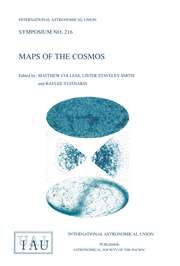No CrossRef data available.
Article contents
ALOFT: A Potential Low Frequency Space VLBI Mission
Published online by Cambridge University Press: 26 May 2016
Abstract
We present a preliminary study of A LOw Frequency Orbiting Telescope (ALOFT) which co-observes with ground radio telescopes, in a similar fashion to the current VSOP mission. Our current straw-man ALOFT mission has a spacecraft operating at three frequency bands (0.33, 0.6, and 1.4—1.6 GHz) in an orbit with a 10,000 km apogee height. It should be relatively low cost as the lower frequencies less stringently constrain the design, for example uncooled receivers, narrower bandwidth, and simple antennae. The major science goal to be addressed by this mission is to examine scattering phenomena through the technique of space VLBI, although other problems, such as AGN physics, can of course also be addressed.
- Type
- Part 9: Instrumentation and Techniques
- Information
- Symposium - International Astronomical Union , Volume 199: The Universe at Low Radio Frequencies , 2002 , pp. 486 - 487
- Copyright
- Copyright © Astronomical Society of the Pacific 2002




